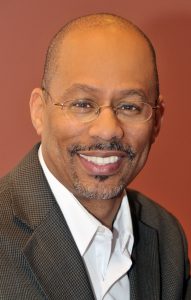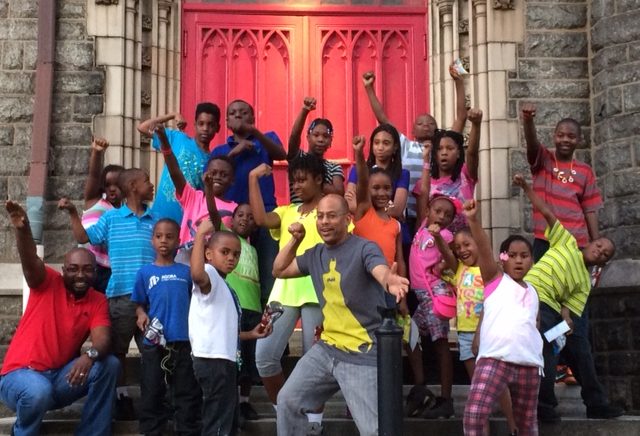 Phila. African-American Leadership Forum
Phila. African-American Leadership Forum
 A matter of black and white?
A matter of black and white?
By the Rev. David W. Brown*
Recently I was honored to have led an effort by the Philadelphia African American Leadership Forum (PAALF) — a network of African American leaders committed to improving the quality of life and life chances for Philadelphia’s African American community — looking at the disparity between African American-led nonprofits and their mainstream counterparts as it relates to funding, sustainability, obstacles of the past and opportunities for the future.
In 2013, the PAALF, with funding from the United Way of Greater Philadelphia and Southern New Jersey, commissioned a study of African American-led nonprofits in Philadelphia to understand whether the experiences and needs of African American-led nonprofits in Philadelphia differed in important ways from white-led nonprofits.
 The study included a survey of 145 Executive Directors or CEOs (“EDs”) of human service-oriented nonprofits in Philadelphia, two focus groups with African American EDs, and four interviews with local funders. Of the survey respondents, 74 are African American (51 percent), 63 are White (43 percent), and 8 are another race/ethnicity (6 percent). Those survey findings were compared between African American and White EDs to uncover similarities and differences in their experiences and organizations. Because churches represent a special class of nonprofits (and there are a significant number of African Americans leading those pulpits), the research intentionally excluded churches from the research.
The study included a survey of 145 Executive Directors or CEOs (“EDs”) of human service-oriented nonprofits in Philadelphia, two focus groups with African American EDs, and four interviews with local funders. Of the survey respondents, 74 are African American (51 percent), 63 are White (43 percent), and 8 are another race/ethnicity (6 percent). Those survey findings were compared between African American and White EDs to uncover similarities and differences in their experiences and organizations. Because churches represent a special class of nonprofits (and there are a significant number of African Americans leading those pulpits), the research intentionally excluded churches from the research.
However, there are some significant insights that can be drawn from the research and what we found was enlightening
While running any nonprofit (regardless of who is at the helm) is tough, black-led organizations struggle more than their white-led counterparts and typically have fewer resources to do so. The study found that organizations led by African Americans are smaller, as defined by the number of staff and volunteers. African American-led organizations have fewer cash reserves and are more dependent on government grants than white-led organizations. These findings regarding cash reserves and government funding may make African American-led organizations more vulnerable to recessions and changes in government, and thus more financially precarious than white-led organizations.

Doing more with less is a reality in most churches but is an especially acute challenge in African American-led churches engaged in urban ministry. Pictured above at Wharton-Wesley United Methodist Church are Senior Pastor Rev. Eric W. Carr, Jr., (far left front row in red shirt) and the Rev. David W. Brown, Deacon (center in gray “Batman” shirt) as they strike a superhero pose with neighborhood children with whom they work in their community ministry there.
Having worked in churches as a member of the ministry staff throughout my career, I have seen similar struggles first-hand. Most African American-led churches have fewer cash reserves than their mainstream-led counterparts as endowments have decreased with the declining numbers of regularly contributing members.
The recommendations coming out of the report – while directed toward African American-led nonprofits – can easily be applied to African American-led churches working in urban environments.
First, the PAALF will be working with funders and intermediaries to ensure that all African American led nonprofits have adequate access to technology to help make these organizations more sustainable and effective. For their part, African American-led churches need to avail themselves of existing and emerging technology that will help them modernize their ministries, attract younger congregants (particularly through the use of social media) and work more efficiently.
Secondly, the PAALF research revealed that African American-led nonprofits are operating in relative isolation and lack the social capital necessary to position their organizations for funding or simply afford leadership access to influential individuals in the city. African American-led urban churches also suffer from the same degree of isolation and remain disconnected from influential individuals who could provide significant support for their ministries. While the PAALF will be deliberate in promoting more collaboration and engagement among African American led nonprofit leaders and the regional philanthropic community, plugging into this effort could benefit African American churches in a meaningful way.
The PAALF study also uncovered that while there is a pool of African American talent, there is no pipeline for leadership, especially among those African American senior or middle management professionals working in majority led organizations. The parallel here is that the African American church continues to struggle in developing its own “bench strength” that provides the kind of pipeline that enables a succession of leadership toward urban pulpits. There are efforts being pursued in the Eastern Pennsylvania Conference through BUMP (Black United Methodist Preachers), BMCR and the Urban Commission to build stronger mentorships and recruitment strategies for effective succession planning and longer term, stable appointments.
In addition, the PAALF is by promoting philanthropy in the African American community, through organizations such as the the Black Philanthropy Network of Philadelphia (BNP), to develop “Giving Circles” in an effort to support high priority issues confronting the black community. It will enable efforts to pool resources that can be directed in the spirit of self-determination. I’m proud to join the BNP and will be encouraging others to do likewise.
Ultimately, these efforts will build a stronger and more vibrant nonprofit sector – and thriving African American-led churches — where leaders of African American-led organizations will be able to access the full wealth of opportunities, networks, resources and tools they need to do the important and impactful work they do in the communities that depend on them.
*The Rev. David W. Brown, Co-Chair of the Philadelphia African American Leadership Forum, is a Deacon in Full Connection serving on the ministry staff at Wharton-Wesley UMC. He is a Visiting Assistant Professor in Temple University’s School of Media and Communication, outgoing vice-chair of the Philadelphia Caucus of Black Methodists for Church Renewal and a member of the Eastern PA Conference Communications Ministry Team and other committees.
The study’s Executive Summary and Full Report is available as a free download on the PAALF website at www.phillyaalf.org.
